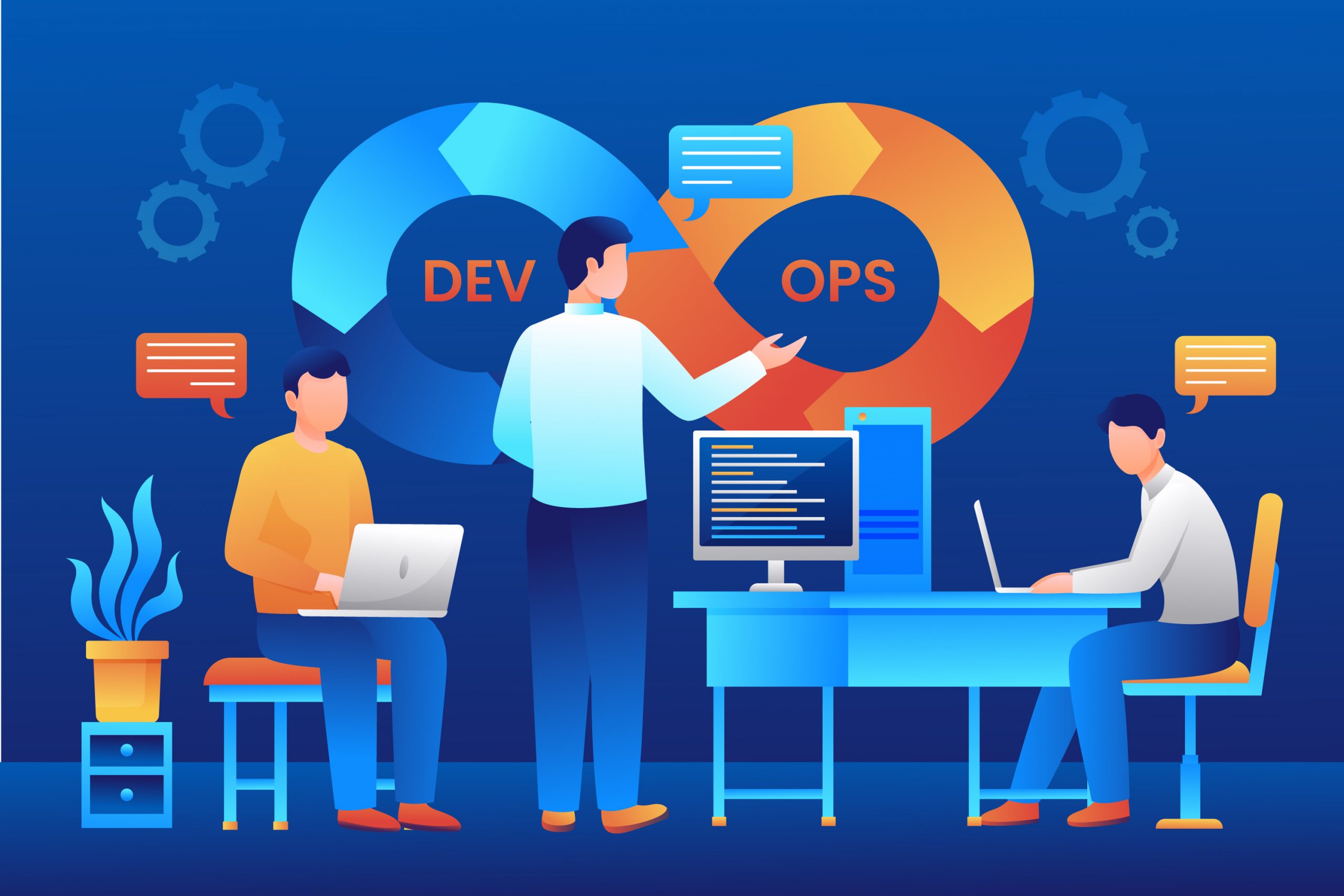Secure Scalability
Innovation
Multiple service offerings
Industry growth
Flexibility
Cost-effective
Unlock business potential with DevOps and Cloud Computing
The Advantages of DevOps and Cloud Computing
The convergence of DevOps and Cloud computing is fundamentally reshaping the landscape of how enterprises conceptualize and implement software solutions. This convergence is a pivotal driving force behind the modernization of software development methodologies, ushering in a new era of agility, scalability, and streamlined deployment. The symbiotic relationship between DevOps and Cloud technologies empowers businesses to optimize their software engineering lifecycles, amplify their adaptability, and expedite the dissemination of impeccable software products.
At its core, DevOps embodies an intricate amalgamation of proven methodologies and principles that ardently seek to automate and elevate the synergy between software engineering teams and the IT operations cohort. This synergy engenders a paradigm shift in operational efficacy, eroding the barriers of isolation, and catalyzing the swifter and more reliable rollout of software iterations. By fostering a cohesive ecosystem where developers and operations personnel seamlessly collaborate, DevOps cultivates an environment primed for seamless integration, continuous integration and delivery, and iterative enhancement.
Simultaneously, cloud computing furnishes the technological foundation upon which this DevOps revolution flourishes. Through the boundless expanse of cloud infrastructure and services, organizations can intricately mold and sculpt their software environments to match the ever-evolving demands of users and markets. The cloud’s elastic nature empowers businesses to dynamically scale resources, rendering them well-equipped to handle surges in demand and accommodate fluctuations with graceful proficiency. This elasticity harmonizes harmoniously with DevOps, nurturing an ecosystem where software deployment is marked by fluidity, precision, and rapid feedback loops.
In sum, the integration of DevOps and cloud computing is ushering in a novel epoch of software craftsmanship. The synergy of these technologies acts as a catalyst, propelling businesses toward heightened efficiency, fortified collaboration, and the vanguard of software excellence. As enterprises continue to embrace and harness this transformative amalgamation, they are poised to realize unparalleled innovation, redefine their development trajectories, and ultimately set new standards for the art and science of software engineering.
How DevOps Accelerates Workflows
Automation tools are a key aspect of DevOps that streamline and accelerate the software development process. Continuous integration and continuous delivery (CI/CD) pipelines automate the software building, testing, and deployment processes. This leads to a reduction in the time and resources needed to release new software updates and features.
The Strategic Advantages of Cloud Computing
On the other hand, cloud computing is the delivery of computing services over the internet. These services may include storage, networking, analytics, and more. By migrating to the cloud, businesses can gain access to flexible and on-demand resources, which aid in speedy and easy software development, testing, and deployment.
Ways Cloud Computing and DevOps Streamline Development
The combination of DevOps and cloud computing has several advantages, such as rapidly creating new testing and development environments, and eliminating the need for costly and time-consuming infrastructure setup. The ability to swiftly scale resources up or down according to demand is another advantage that helps businesses to reduce costs and improve agility.
Additionally, integrating DevOps and cloud computing can enhance the security of an organization’s software development process. Automating the deployment of software updates and patches can minimize the risk of vulnerabilities and ensure that the system is continually updated.
Conclusion
In summary, the merger of DevOps and cloud computing can enhance software development processes, speed up updates and features, and enable the scaling of resources on demand. This results in a more dynamic and productive organization, better suited to compete in today’s fast-paced business environment.
want to learn more click here

